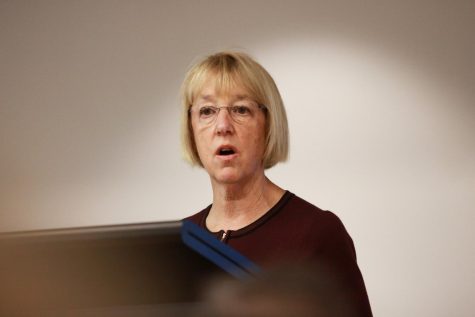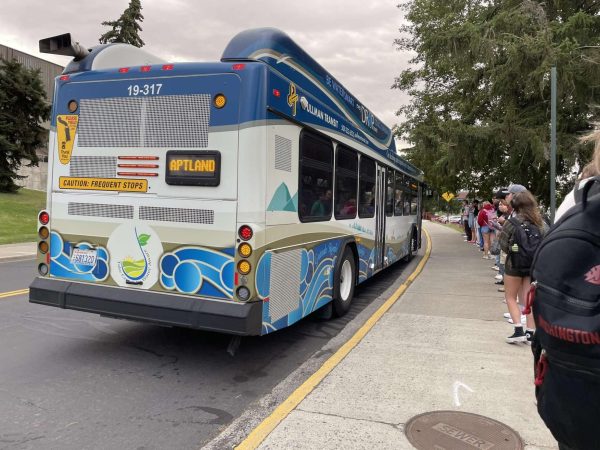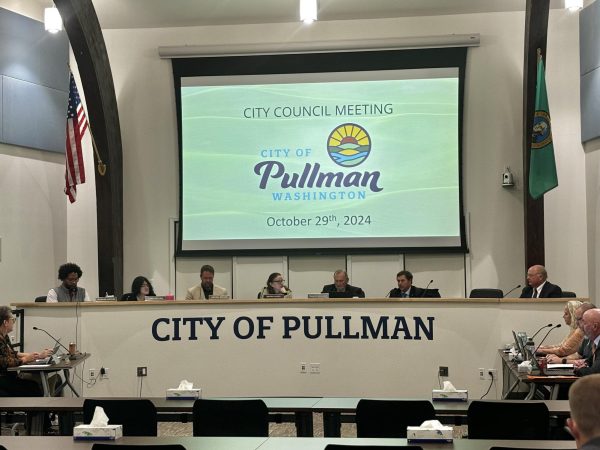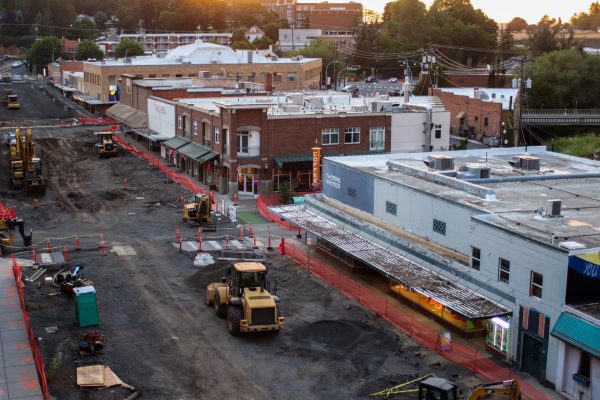Early start times affect teenagers
Researchers say wake up times can stop people from finishing sleep cycle
“In 2014, the American Association of Pediatrics said high schools should not start at 8:30,” University of Washington Professor Horacio de la Iglesia says.
University of Washington Professor Horacio de la Iglesia gave a presentation on the effects sleep deprivation has on teenagers.
De la Iglesia said everyone is sleep deprived. He said sleep deprivation is getting worse and there is a sleep deprivation epidemic in the U.S.
De la Iglesia said teenagers are the most sleep-deprived.
He said teenagers, from ages 14 to 17, are recommended to have about 8-10 hours of sleep. He said young adults, from ages 18 to 25, and adults, from ages 26 to 64, are recommended to have about 7-9 hours of sleep.
He said people who are sleep deprived will have health issues.
De la Iglesia said most states start school before 8:30 am which is too early for teenagers because their circadian rhythm is changing. A circadian rhythm is a cycle that regulates sleep.
He said waking teenagers around 7 a.m. truncates teenagers’ circadian clock, which means they didn’t get to finish their sleep cycle.
“In 2014, the American Association of Pediatrics said high schools should not start at 8:30,” he said.
De la Iglesia said during the week people are forcing teenagers to wake up early while their bodies are trying to readjust their biological clocks on the weekend.
“So you can send them to sleep at 10 p.m. but they won’t fall asleep until their brain is ready,” he said.
He said the effects that sleep deprivation has on teenagers can include engaging in risky behavior, affected memory and changing eating behavior which can cause cravings for junk food.
De la Iglesia said a study was conducted at Roosevelt and Franklin High School. This was the first time there was an objective and quantitative study on how the increase of sleep and affects academic performance.
He said he and others lobbied to the Seattle school board for about 4-5 years to have schools push back school times.
De la Iglesia said Seattle had a task force to interview stakeholders which led to Seattle changing their start time to 8:50 a.m. for all public high schools in 2016.
He said the schools studied were Roosevelt High School, which is predominantly white and higher income, and Franklin High School, which is located in an inner-city with a majority of students being ethnic minorities.
De la Iglesia said the change led to a 4-5 percent increase in students’ grades.
He said attendance was also increased in Franklin High School but did not change the attendance for Roosevelt High School.
De la Iglesia said sleep is a fundamental biological process necessary for learning and being attentive.
He said delaying start times improves students’ sleep.
“Physiologically it’s difficult for you to sleep more than you need unless you’re depressed or have a disorder,” he said.

Andrea Gonzalez is a junior majoring in elementary education from Yakima, WA. She started working for the Evergreen in the fall of 2019.












